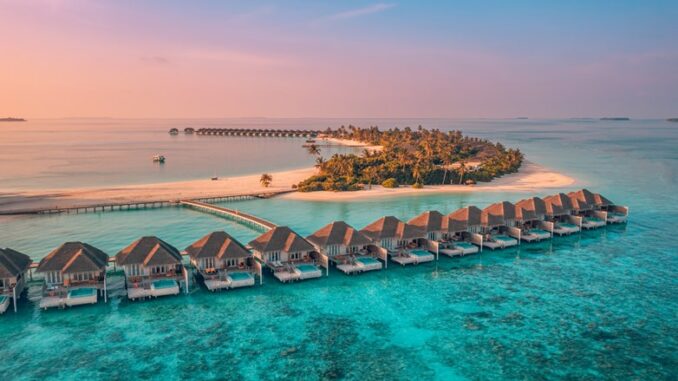
The Maldives is globally known as a luxury destination, a paradise of overwater villas, turquoise waters, and unmatched hospitality. But behind the postcard-perfect image, there’s an issue brewing at the very first point of contact for travelers: Maldives immigration is enforcing outdated and rigid entry requirements that may be doing more harm than good to the country’s tourism industry.
A System Stuck in the Past
At the heart of the problem is a mandatory hotel booking requirement. Visitors arriving in the Maldives are often forced to present proof of a hotel reservation—or face denial of entry or even deportation. On paper, this might seem like a reasonable safeguard. In reality, it’s an obsolete practice in today’s travel landscape.
Online hotel bookings are now flexible by design. Most platforms allow free cancellations, even after arrival. Travelers use this flexibility to adjust their plans, try local guesthouses, or explore multiple islands. Holding onto hotel bookings as a strict visa requirement is no longer practical—and worse, it invites loopholes and exploitation, especially by illegal agents gaming the system with fake or temporary bookings.
Is Immigration Working Against Tourism?
Maldives markets itself as a premium destination that welcomes Free Independent Travelers (FITs)—those who plan their own trips and seek authentic experiences. Yet, the current immigration policy seems to undermine this very model.
Instead of supporting flexibility and freedom for tourists, immigration officers often act like gatekeepers of a rigid, outdated system. This disconnect is not just frustrating—it sends a message that Maldives doesn’t trust its visitors.
What makes matters worse is the inconsistent enforcement. Some travelers are allowed in with minimal checks, while others are interrogated or sent back for technicalities. Such unpredictability damages the country’s image, particularly in the age of social media where negative airport experiences go viral in minutes.
Hotel Booking ≠ Tourist Intent
Booking a hotel does not guarantee that someone will stay there. Nor does it prove that a traveler intends to follow the rules. What matters far more is whether a visitor:
-
Has sufficient funds to sustain themselves,
-
Has a valid return ticket,
-
Shows clear intent to visit as a tourist, not overstay or work illegally.
Many countries, including those with strong tourism sectors, use on-arrival financial proof (such as showing a bank balance or credit card), combined with smart risk profiling and digital pre-clearance. The Maldives could adopt a similar, modern system that protects national interests without scaring off travelers.
The Way Forward: Smarter, Not Stricter
Here’s what Maldives can do immediately to fix this broken approach:
-
End mandatory hotel bookings for short stays, especially for countries with visa-free or visa-on-arrival access.
-
Introduce optional financial checks—ask visitors to show they can support themselves, either through cash, cards, or digital wallets.
-
Modernize immigration systems to detect high-risk profiles instead of penalizing legitimate tourists with paperwork.
-
Train customs and immigration staff in digital literacy, cultural awareness, and modern travel patterns.
-
Support the FIT market by promoting flexible, transparent guidelines that welcome solo travelers, digital nomads, and explorers.
A Better First Impression
The airport is the first impression of a country. Right now, Maldives is risking that impression by clinging to old policies that hurt its own tourism economy. Immigration should be the frontline of hospitality—not hostility. It’s time to move forward with a smarter, more modern approach that matches the world-class image the Maldives is known for.

